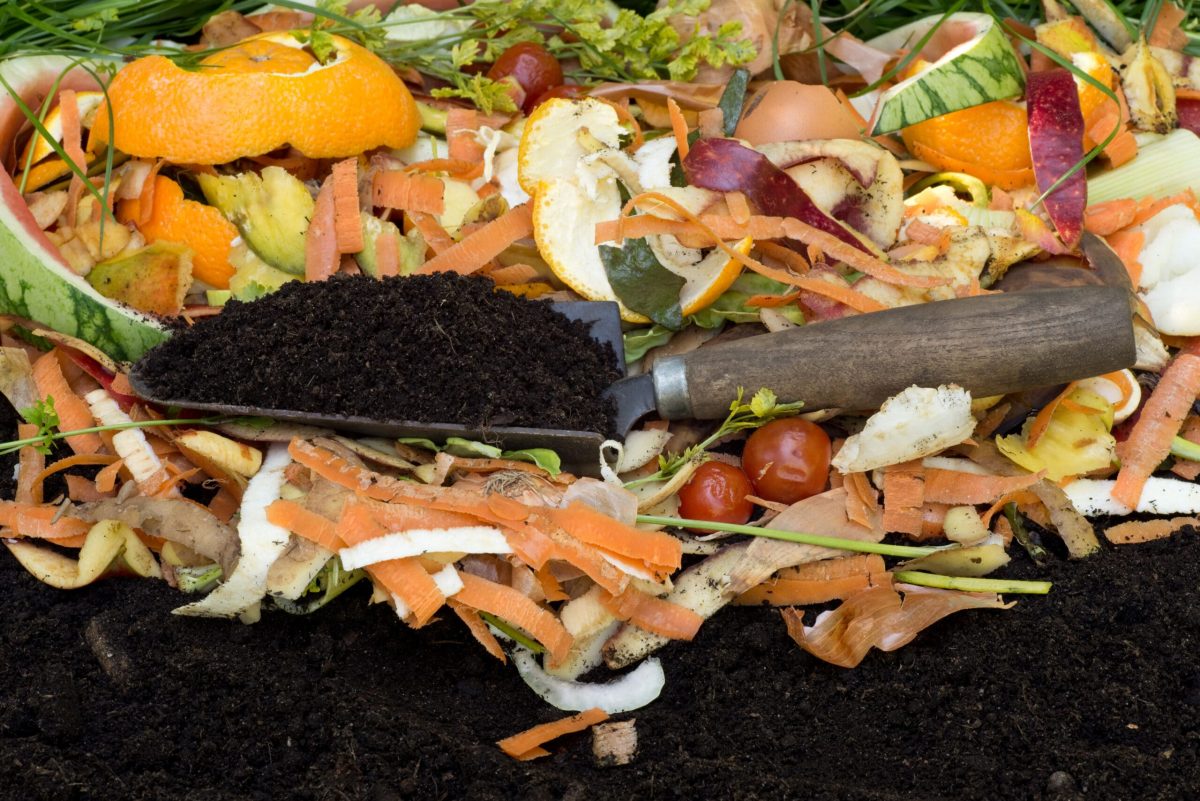As we celebrate this year’s World Soil Day, let us remember that healthy soil is one of the keys to our very existence. As such, soil should be regarded as a precious resource, handled with the utmost care and consideration.
There are a variety of ways we can regeneratively sustain our soil. Composting is one of those ways and can easily be done by anyone, anywhere.
The Process of Composting
Composting is the process of combining carbon (leaves, wood chips) with nitrogen (food waste, yard trimmings), heating it up & engaging microorganisms, bacteria and fungi to break down the combined waste into finished, sweet smelling organic matter that sequesters carbon from the air. According to the Institute for Local Self-Reliance, 167 million tons of trash goes to the landfill or incinerator and 50% of that could have been composted. OurWorldinData.org reports that 6% of global greenhouse gas emissions are due to food loss and food waste. That food waste could be composted into an effective carbon-sink through a few simple steps!
The Benefits of Healthy Soil for our Ocean
Often times, our ocean can be out-of-sight and out-of-mind, especially if we do not live on a coastline. However, you may be surprised to learn that healthy soil is an essential component of a healthy blue ocean. Fertilizers, detergents, sewage and other land-based pollutants can leech into our soil and runoff into our waterways. This nutrient pollution in our ocean is known as eutrophication.
Compost acts as a filter and helps degrade & filter out urban stormwater pollutants by 60-95%, therefore improving water quality. This is enormously important as so much of our water makes its way to our planet’s ocean. Furthermore, composting removes the need for synthetic fertilizers. This is essential to ocean health, as synthetic fertilizer runoff is often a main culprit of eutrophication, leading to harmful algal blooms that jeopardize our aquatic life.
Yale School of the Environment reports that “Carbon is the main component of soil organic matter and helps give soil its water-retention capacity, its structure and its fertility.” The ILSR additionally reports that because compost holds 5x its water weight, the risk of stormwater runoff is greatly reduced.
Your Journey to Reducing Food Waste
Now that your heart may have skipped a beat reading the information above, hopefully you’re ready to make a quick and easy change and begin reducing food waste. Here’s a few ways to get started:
- Begin composting!
- Choose the method that works best for you and/or your family. Whether you live in an apartment or have a yard, there’s a way to compost.
- Evaluate your food intake & waste output
- If you are consistently throwing out clementines or a half loaf of bread, you may want to evaluate what you’re purchasing and make adjustments as necessary to exclude or substitute items that are typically wasted.
- Meal Prep
- Meal planning serves as a guideline for grocery shopping, cooking and consuming. Toni Okamoto, author of Plant-Based On a Budget, provides a number of meal prep ideas for both individuals and families.
- Use the oldest food first
- This seems like a no-brainer, but you’d be surprised as to how much food gets forgotten. If storing in the fridge, use glass containers to help you see your leftovers.
- Freeze
- If your food is getting close to the end of its run, and you haven’t used it, throw it in the freezer to enjoy later on. On the contrary, if you have too much food (think of summer tomatoes), freeze for use during winter months.
Some of these suggestions may work better for you than others, but most importantly you’ll be making a concerted effort to reduce your food waste and promote healthy soil and a healthy ocean. Always remember small actions made by many people create big impact. Be that change!
